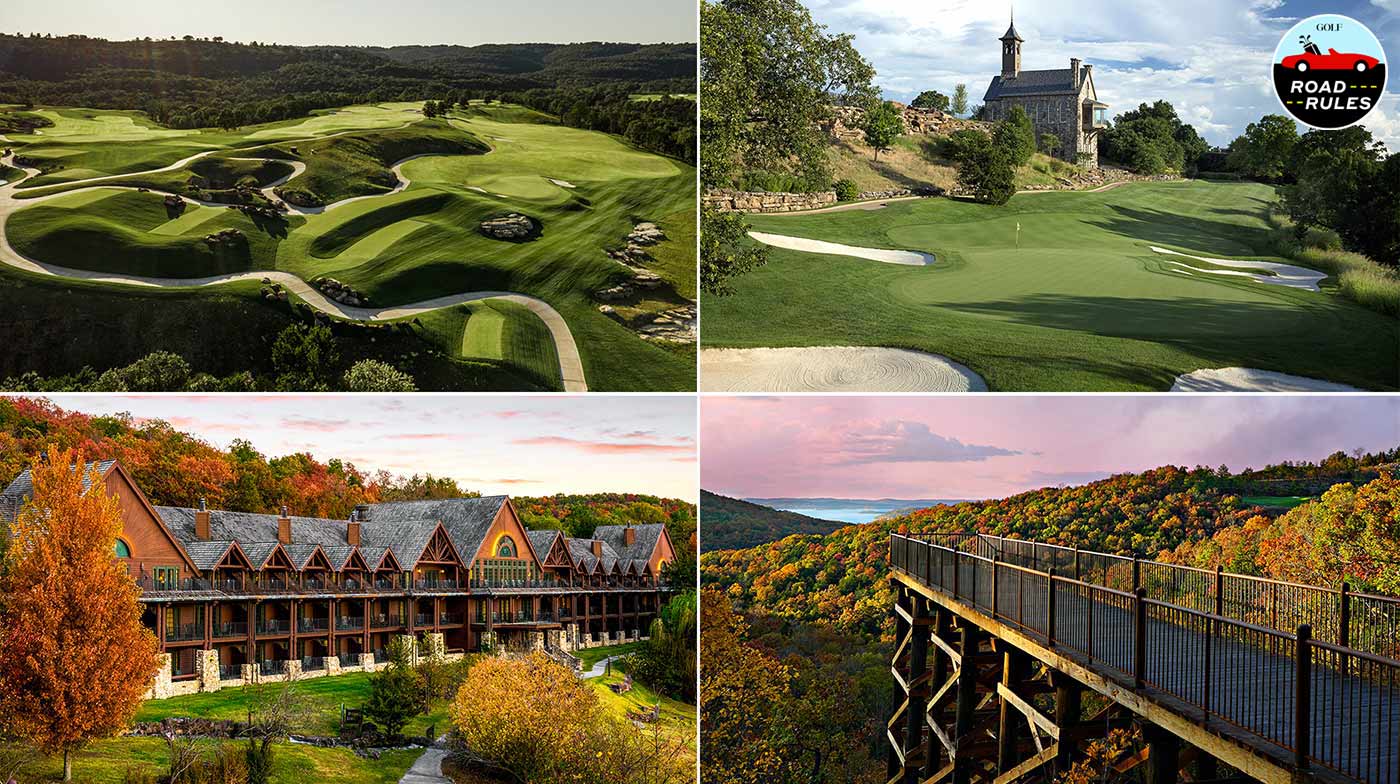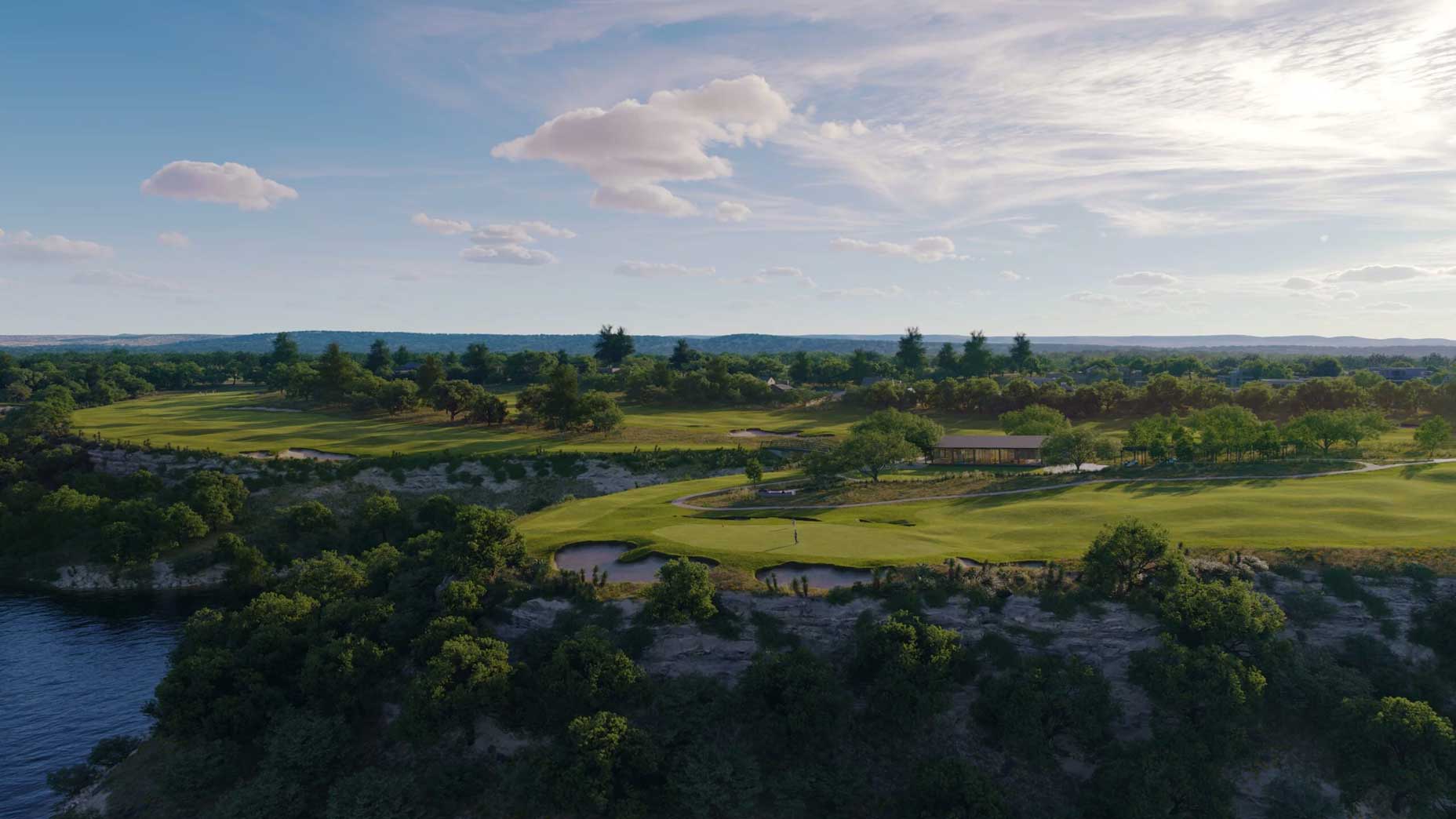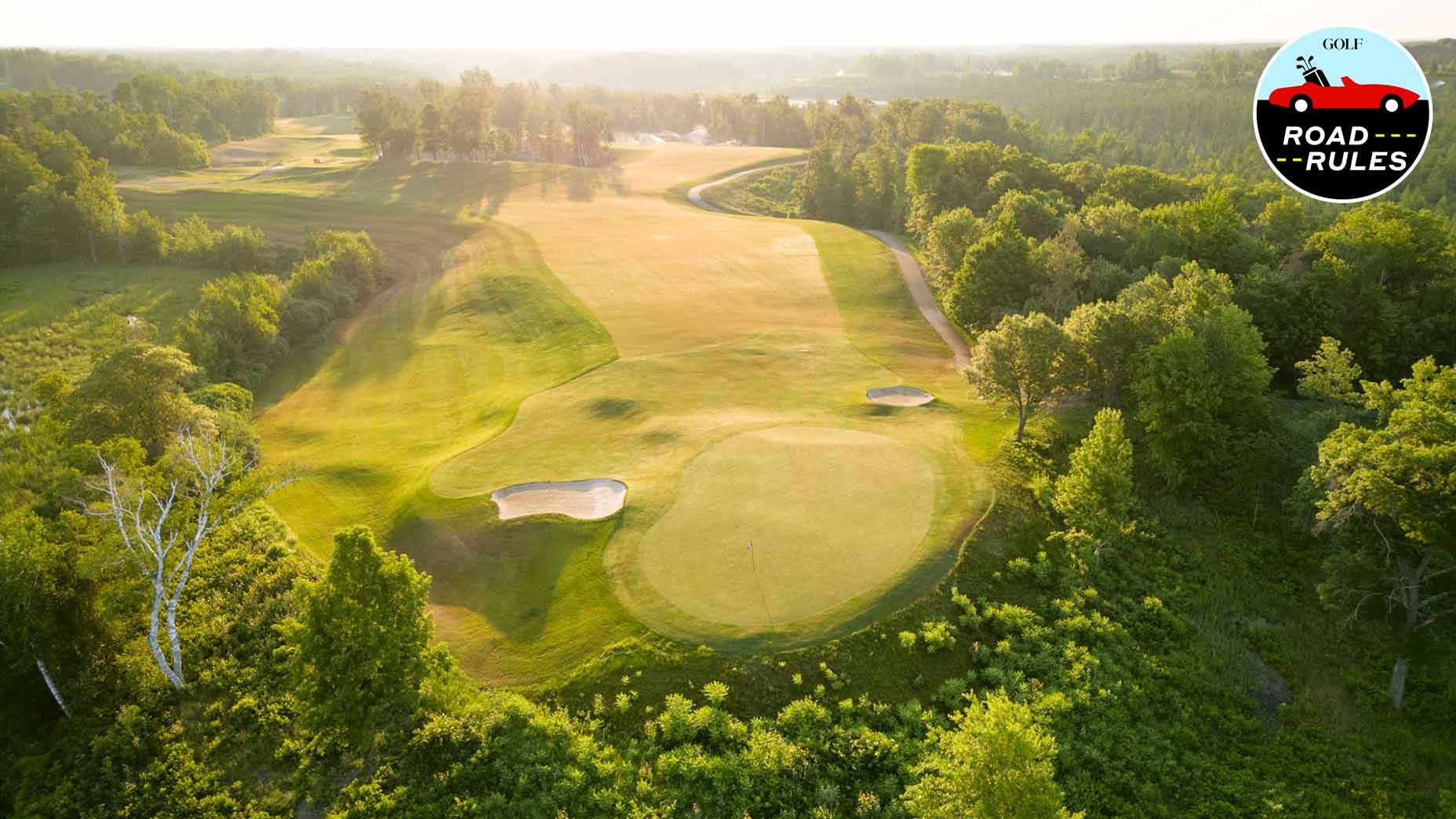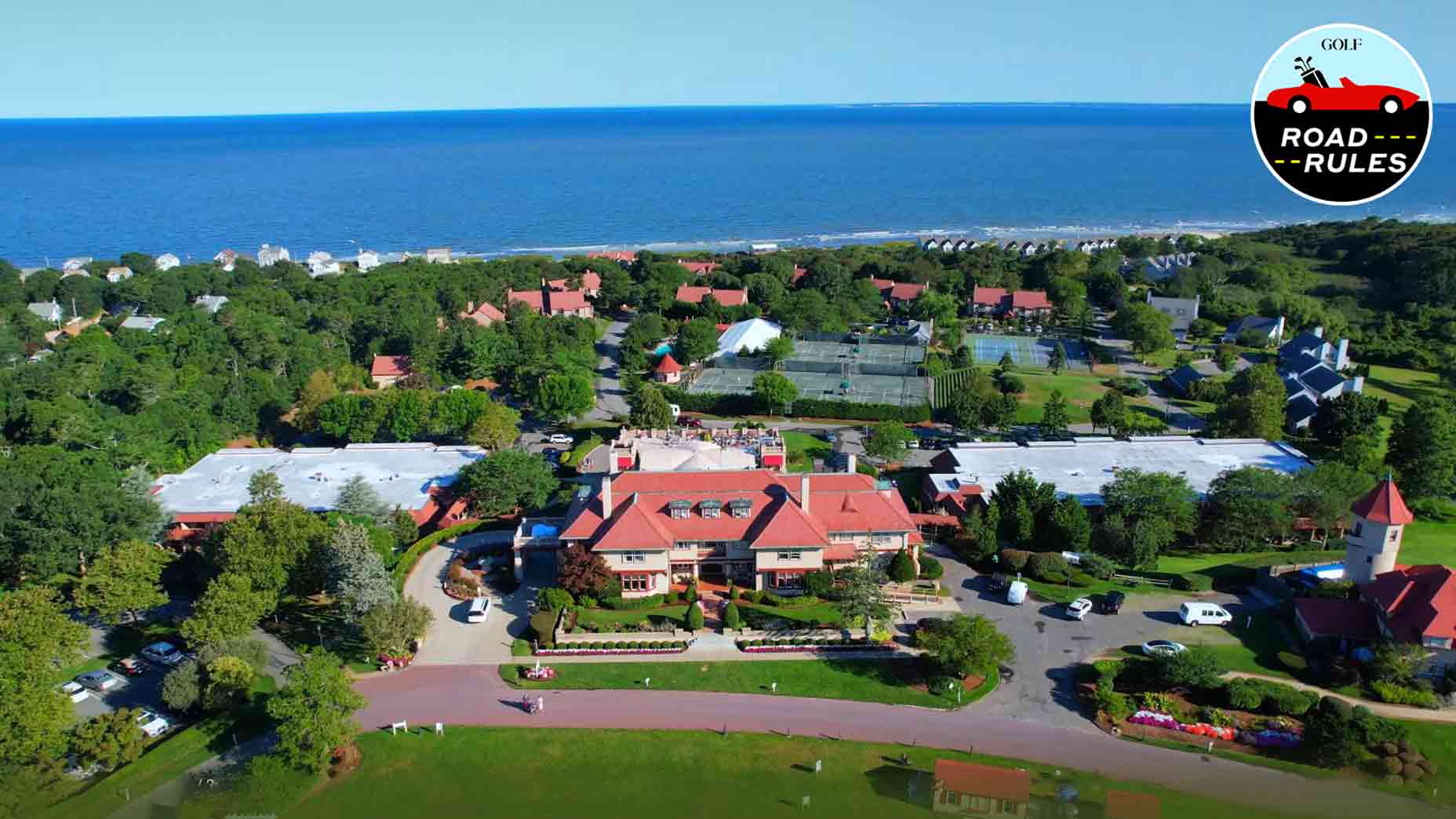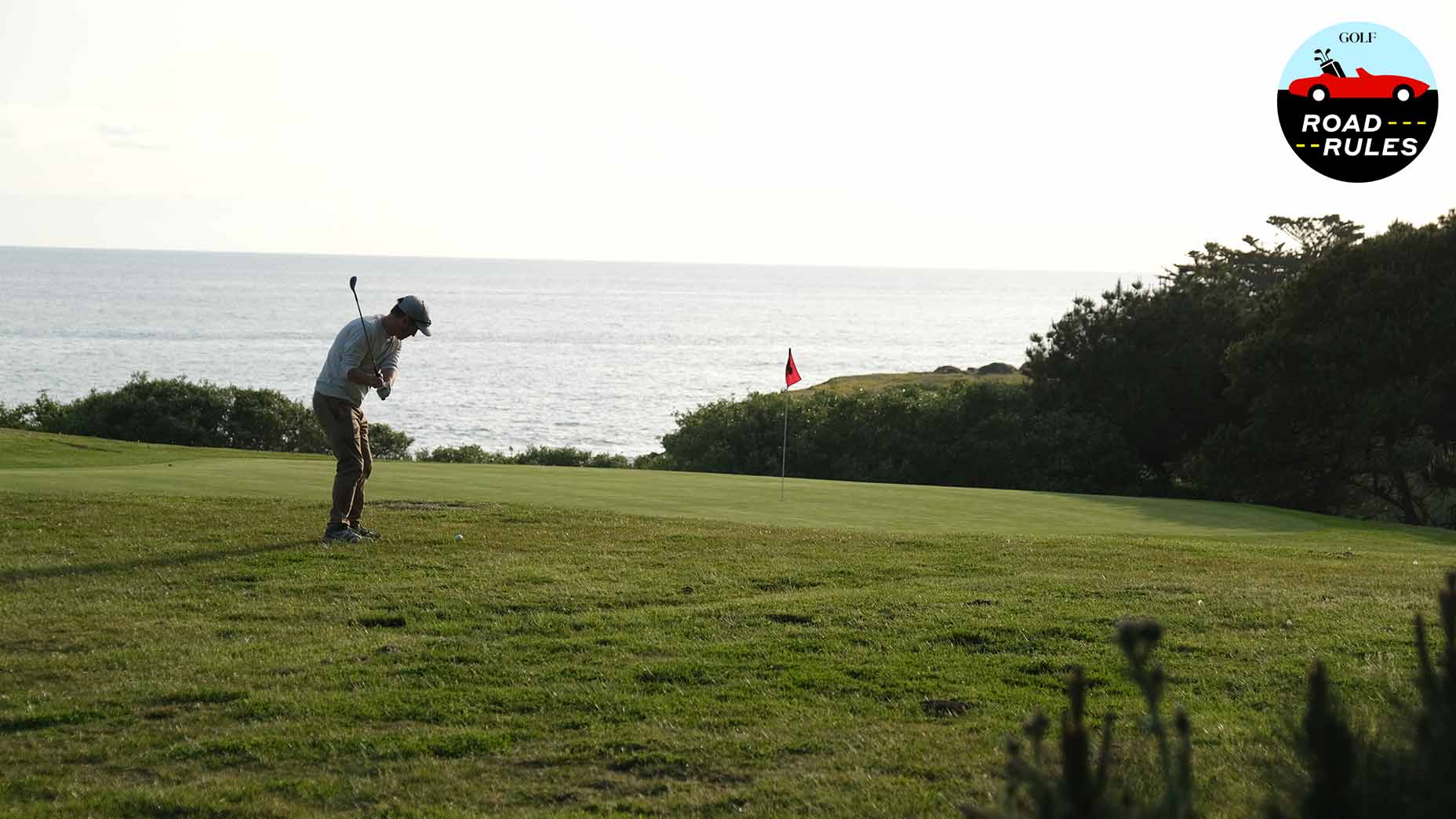After playing the wee 587-yard par-4 4th hole at the hot-off-the-presses RainDance National in Windsor, Colo., I drove around the green and came up to a weathered sign sticking out of the windswept grass. It informed me I was playing the longest golf course in North America. Seemed selfie-worthy. I figured there might as well be some evidence I was here — in case I didn’t survive.
I’ve played long golf courses before. So have you. But 8,463 yards? That’s a tad over the top, no? Yes, it is.
But, as the saying goes, “If you build it, even though they will get their asses kicked, they will come.” And, while the jury may still be deliberating whether or not RainDance National is some type of masochistic, pain-inducing, attention-grabbing ploy, or what have you, plenty of people are coming out to experience this one-of-a-kind, man-made wonder of the golf world.

As for the men who made it? That would be lead architect Harrison Minchew along with consultant, PGA Tour player Fred Funk, who, ironically, is one of the shorter hitters on the senior circuit. Go figure.
RainDance National opened in July 2022. The course — a wide-open prairie links situated on a rolling, ravine-streaked plot of land along the Poudre River — is located about an hour north of Denver. The terrain is exceptional and the golf holes are exciting and interesting from start to finish. The founder of the course is landowner and developer Martin Lind, whose family has been farming this land for generations. (You’ll notice many of the family’s old farming relics peppered throughout the property.)
While not the longest course in the world, it’s the longest in North America. So, yes, the sign didn’t lie. Incidentally, the longest golf course in the world is Jade Mountain Snow Dragon in Lijiang, China. It’s a par 72 that tips out at 8,548 yards. However, it’s situated at 10,000 feet above sea level, where golfers experience a life-saving 20-percent boost in distance.
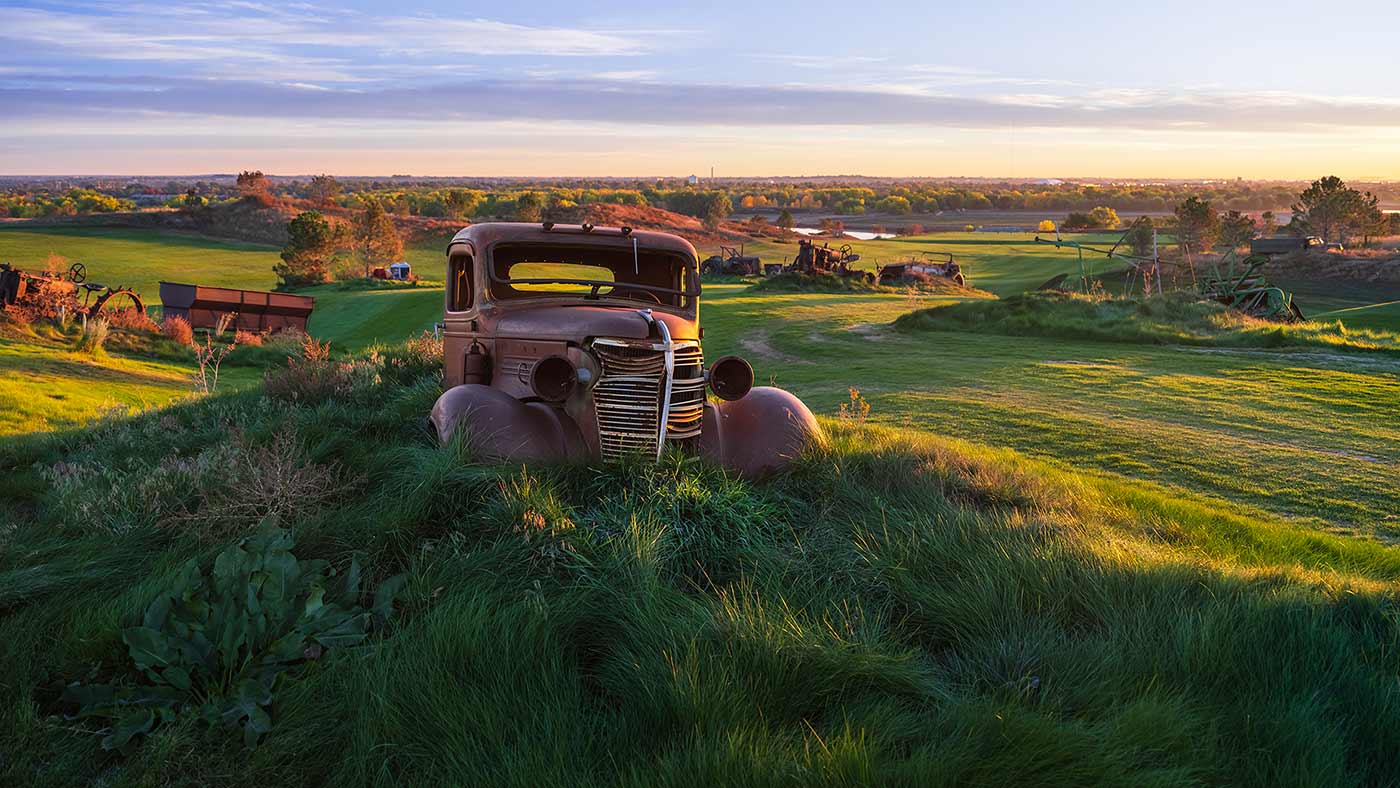
Sure, this barbaric beast in Colorado is also situated at a lofty elevation — 4,800 feet, to be exact — so, yes, give yourself a few extra yards (roughly 10 percent) for that comforting token. Also, the three satanic 600-yard par-4s are aided by downhill grades. (From the tips, there are 11 holes over 500 yards. And just five of them are par-5s.) The turf is firm and fast, too. So there’s that. I suppose, at this point, you might have a little twinkle in your eye. A glimmer of hope. “So you’re saying there’s a chance?” Ah, no. That’s not, in fact, what I’m saying. Not from the back tees.
Even for decent single-digit handicaps (I’m in that camp), playing RainDance National from the tips is a grueling, humbling, damn-near-impossible endeavor. A handful of 300-yard carries just to get to the fairway make it so. That’s the bad news. The good news? You don’t need to play it from the forged-in-the-fires-of-hell back tees.
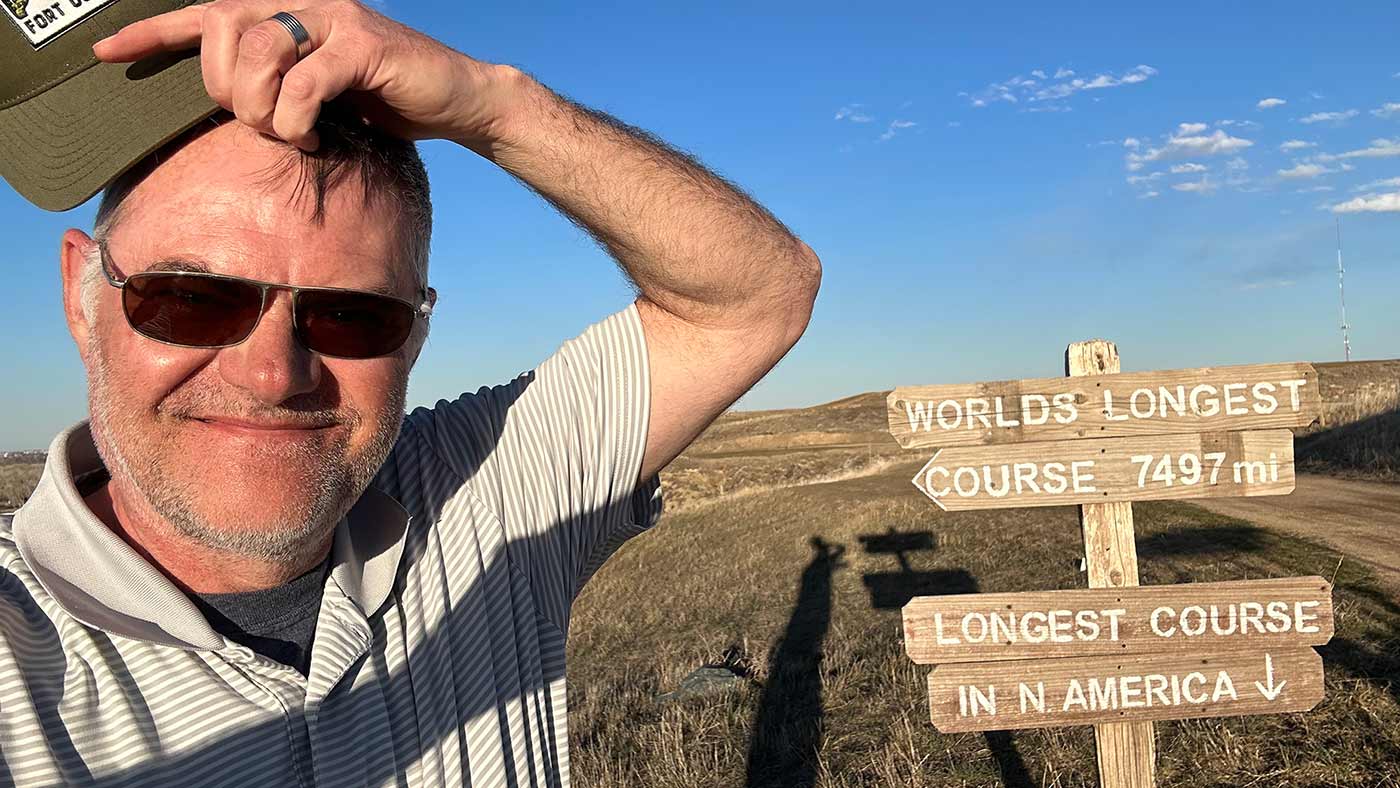
“Yes, from the back tees the course is designed to challenge the best and most powerful players in the world,” says Minchew, the course architect who has designed over 75 courses in his lengthy career, many with Arnold Palmer’s design company. “To have a little bit of cushion, you really need to be able to carry the ball 320 yards, or so. But the middle and forward tees, where the vast majority of players will tee it up, yield a fair test that is suitable for recreational players. As with any golf course, players need to honestly assess their skill level and play from the appropriate tee boxes.”
And if you don’t? Well, carnage will ensue. I’m proof of this. Here are a few of my “lowlights.” On the 2nd, a 713-yard par-5 that was actually playing slightly downwind, I could not hit the required 300-yard drive to get to the fairway. I hacked it out of the gully. Card me a 6. On the 597-yard 5th (it’s a par-4), I hit a solid drive and still had a 315-yard approach to a perched green. No chance. On the 8th, a 270-yard all-carry par-3 that played into the wind and over a you’re-dead-if-you-go-in-it ravine, I was woefully short. Call it a blue-collar double from the drop area.

The back nine? Similar theme. On the 10th, a 600-yard par-4 that played downhill and downwind, I absolutely hammered a drive and was still 15 yards short of hitting the fairway, which started a mind-blowing 320 yards from the tee. My ball plugged in the waste area. It’s still there. On the 16th, a measly 597-yard par-5, the only conceivable shot I had was to try and double bounce it over the bridge to get to the fairway. No dice.
Oh, sure, there were some doable holes. Even some lucky moments. Amazingly, on the 587-yard 4th, I scorched my 3-wood approach to two feet for my only birdie (I’d be inclined to call that an eagle) of the day. I also one-putted for par on a few occasions after hitting strategic layups due to my lack of firepower to reach greens in regulation. So, interestingly, when it was all said and done, my score of 234 wasn’t all that bad. Kidding. I shot 89. But I had to putt extremely well to do it. And, the kicker, I played very early in the season when it was still possible to find (and often play) your ball in many of the gullies and ravines. In the summer, when the grass is green, thick and thigh-high, forget it.
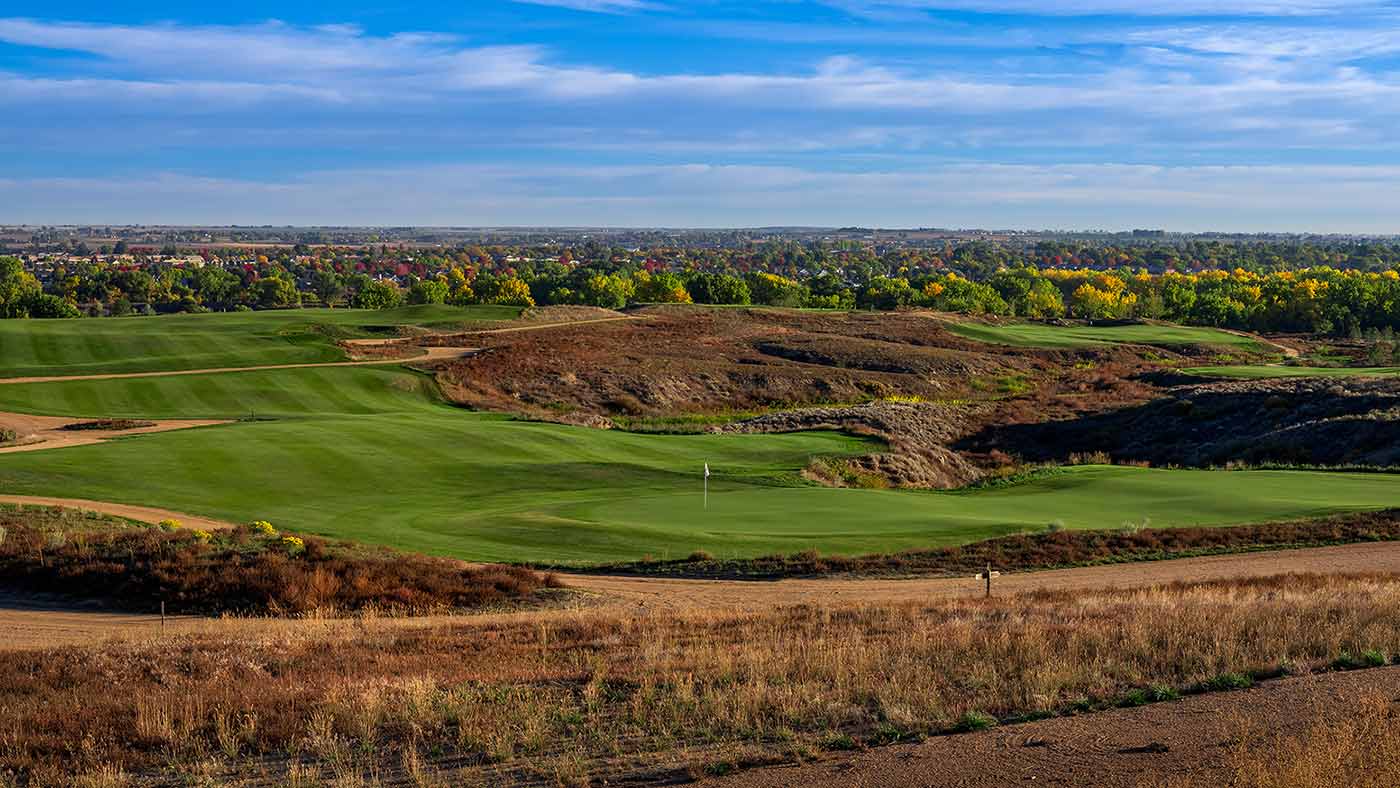
So, yeah, I played the back tees at RainDance National and I lived to tell about it. Would I recommend you do it? Hell, no. If you’re a Tour player on a raw-egg diet, you might have a chance. Otherwise, if you’re a low-single-digit stick, just play the blue tees (they’re still a healthy 6,926 yards) and enjoy. After all, it’s a beautiful prairie course with many outstanding golf holes. Best to leave the pain and suffering for all the “hero” golfers out there who think they’re all that. Or inquisitive golf writers who need a good beat down.
Bonus golf?
If you’re looking to give your driver an additional workout, or two, rest assured, there are plenty of excellent — and long! — golf courses in this region to add to your itinerary.
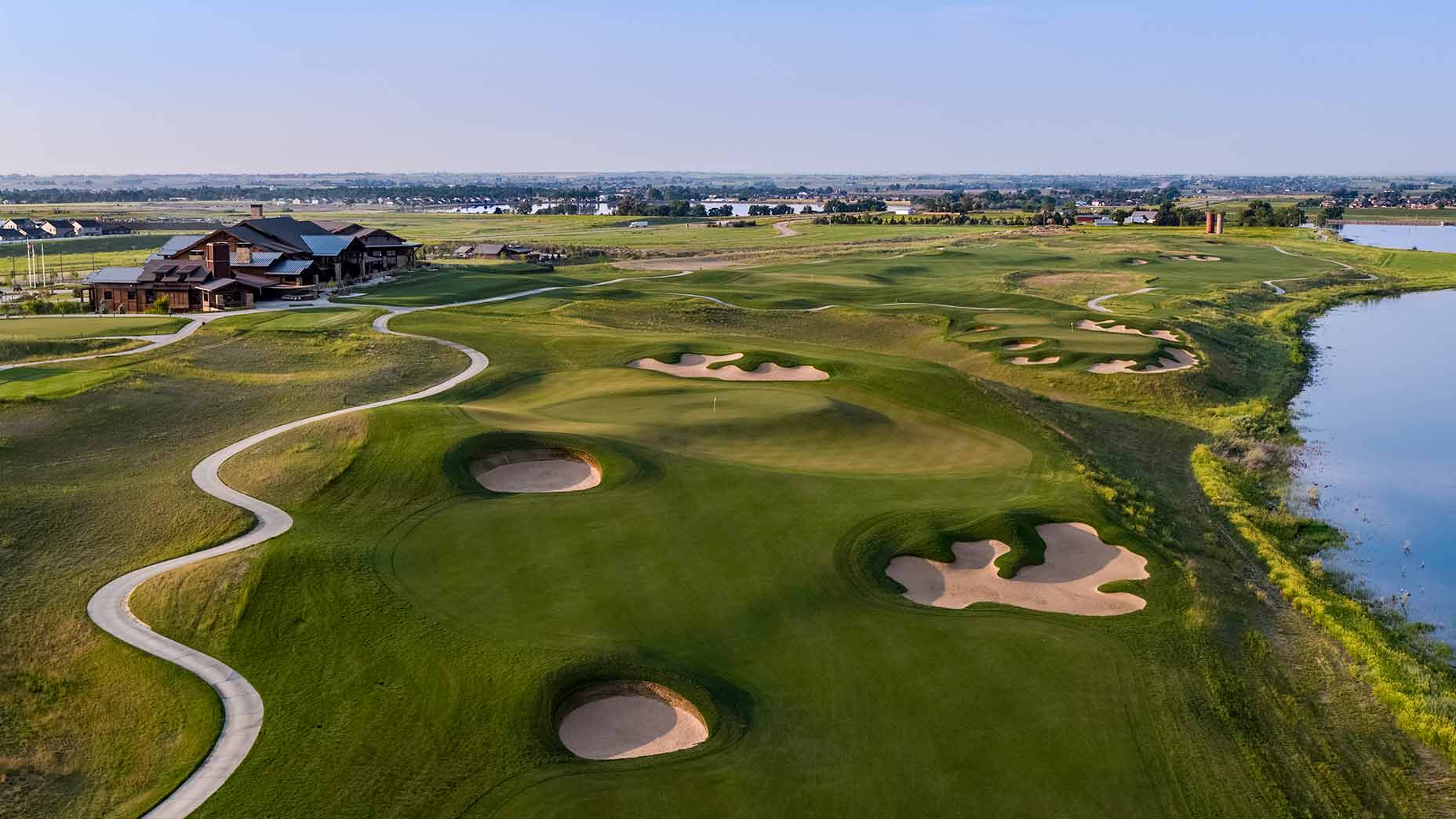
The TPC Colorado in nearby Berthoud is a fantastic Art Schaupeter design that parades along the Lonetree Reservoir. At 7,991 from the tips, the bombers on the Korn Ferry Tour always have their hands full here when the club hosts The Ascendant, one of the most popular events on that tour, each summer. The majestic mountain views, the strategic nature of the design, the setting, the world-class greens and turf conditions, and one of the nicest clubhouses I’ve ever seen, make this a “must play” in the Denver region. However, the course is semi-private and tee times are not easy to snag. Mondays are best.
Also, Colorado National Golf Club in Erie, which is also just north of Denver, boasts a scenic 7,567-yard test that is the exclusive home to the University of Colorado men’s and women’s golf teams. Best to bring a well-behaving driver here as well. And maybe slurp some raw eggs before you play. (You know, for extra power.)
Andrew Penner is a freelance writer and photographer based in Calgary, Alberta. You can follow him on Instagram at @andrewpennerphotography.


